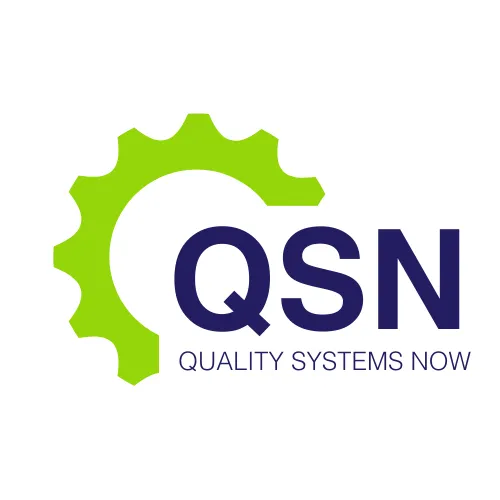Web Worfklows recommends Quality Systems Now.
Compliance and Accreditation Solutions
Are you seeking to obtain a GMP license or ISO accreditation as you embark on your journey towards commercialization? Whether you’re establishing a new facility or aiming to advance your current operations for licensing or accreditation, we are here to assist you every step of the way.
Quality Management Systems Support
Are you in need of creating or revising your Quality Management System? Whether you’re lagging behind with document updates or require procedures to be rewritten in clear, understandable language, we’ve got you covered.
Perhaps your company is experiencing growth and expansion, and your existing QMS is no longer sufficient, necessitating a comprehensive overhaul.
Alternatively, it might be time to transition from a traditional hardcopy, manual system to an electronic Quality Management System (eQMS) or Document Management System (eDMS).
Whatever your needs may be, we are here to provide assistance every step of the way!
What are ISO Certifications?
ISO certifications play a pivotal role in the global business landscape, serving as internationally recognized standards for quality, safety, efficiency, and environmental management. The International Organization for Standardization (ISO) develops and publishes these standards, which are widely adopted by organizations across various industries worldwide. In this discussion, we’ll explore the significance of ISO certifications, their benefits, common types, and the process of obtaining them.
Significance of ISO Certifications:
ISO certifications provide organizations with a framework for establishing and maintaining effective management systems, processes, and practices. By adhering to ISO standards, businesses can enhance their operations, improve customer satisfaction, mitigate risks, and demonstrate their commitment to quality and excellence.
Benefits of ISO Certifications:
- Enhanced Credibility and Reputation: ISO certifications validate an organization’s adherence to internationally recognized standards, enhancing its credibility and reputation among customers, partners, and stakeholders.
- Improved Quality and Consistency: ISO standards promote quality management principles such as customer focus, continuous improvement, and process optimization, resulting in improved product and service quality, consistency, and reliability.
- Increased Market Access and Opportunities: ISO certifications open doors to new markets and opportunities by demonstrating compliance with regulatory requirements and customer expectations, facilitating international trade and partnerships.
- Enhanced Operational Efficiency: ISO standards help organizations streamline processes, reduce waste, and increase efficiency, leading to cost savings, resource optimization, and improved productivity.
- Risk Management and Compliance: ISO certifications provide a systematic approach to identifying, assessing, and managing risks, ensuring regulatory compliance, and safeguarding against potential liabilities and disruptions.
- Customer Satisfaction and Trust: ISO-certified organizations are better equipped to meet customer needs and expectations, resulting in increased satisfaction, loyalty, and trust among customers and stakeholders.
Common Types of ISO Certifications:
- ISO 9001: Quality Management System (QMS): ISO 9001 sets the standard for quality management systems, emphasizing customer focus, process improvement, and continual enhancement of products and services.
- ISO 14001: Environmental Management System (EMS): ISO 14001 focuses on environmental management practices, helping organizations minimize their environmental impact, comply with regulations, and promote sustainability.
- ISO 45001: Occupational Health and Safety Management System (OHSMS): ISO 45001 establishes requirements for occupational health and safety management systems, ensuring a safe and healthy work environment for employees and stakeholders.
- ISO 27001: Information Security Management System (ISMS): ISO 27001 addresses information security risks, protecting confidential information, ensuring data integrity, and safeguarding against cyber threats and breaches.
- ISO 22000: Food Safety Management System (FSMS): ISO 22000 outlines requirements for food safety management systems, ensuring the safety and integrity of food products throughout the supply chain.
Process of Obtaining ISO Certifications:
The process of obtaining ISO certifications typically involves the following steps:
- Gap Analysis: Assess your organization’s current practices and systems against the requirements of the relevant ISO standard to identify areas for improvement and compliance gaps.
- Documentation and Implementation: Develop and implement policies, procedures, and processes aligned with ISO standards, ensuring documentation, training, and communication across the organization.
- Internal Audit: Conduct internal audits to evaluate the effectiveness and compliance of your management systems, identify non-conformities, and implement corrective actions.
- Certification Audit: Engage a third-party certification body to conduct an external audit of your management systems to verify compliance with ISO standards and assess readiness for certification.
- Certification Decision: Upon successful completion of the certification audit, the certification body will issue an ISO certificate, indicating your organization’s compliance with the respective ISO standard.
- Continual Improvement: Maintain and continually improve your management systems through regular monitoring, measurement, analysis, and enhancement of processes and performance.
ISO certifications offer numerous benefits for organizations seeking to enhance their operations, demonstrate compliance, and achieve competitive advantage in the global marketplace. By adhering to internationally recognized standards for quality, safety, environmental management, and information security, businesses can improve efficiency, credibility, and customer satisfaction while mitigating risks and driving sustainable growth. Embrace ISO certifications as a strategic tool for achieving excellence and success in today’s dynamic and competitive business environment.

